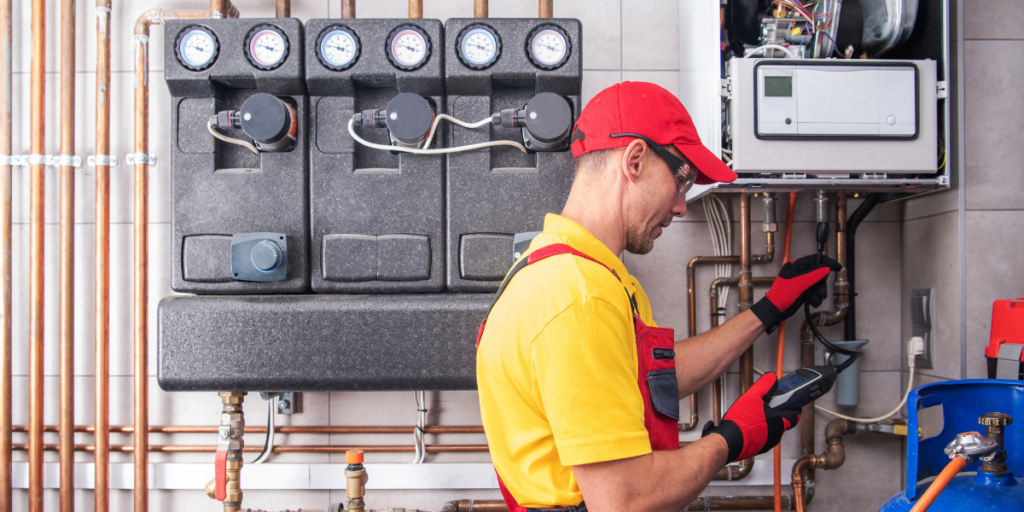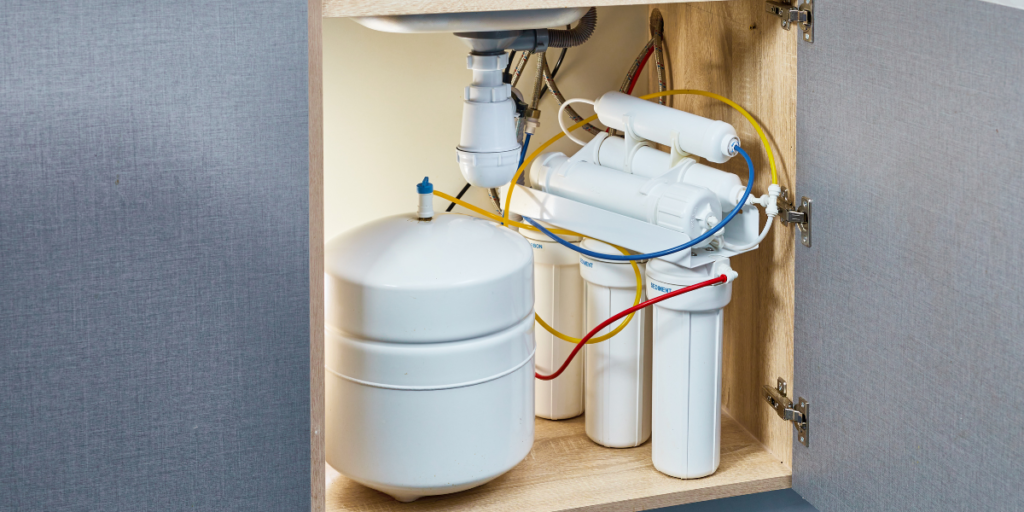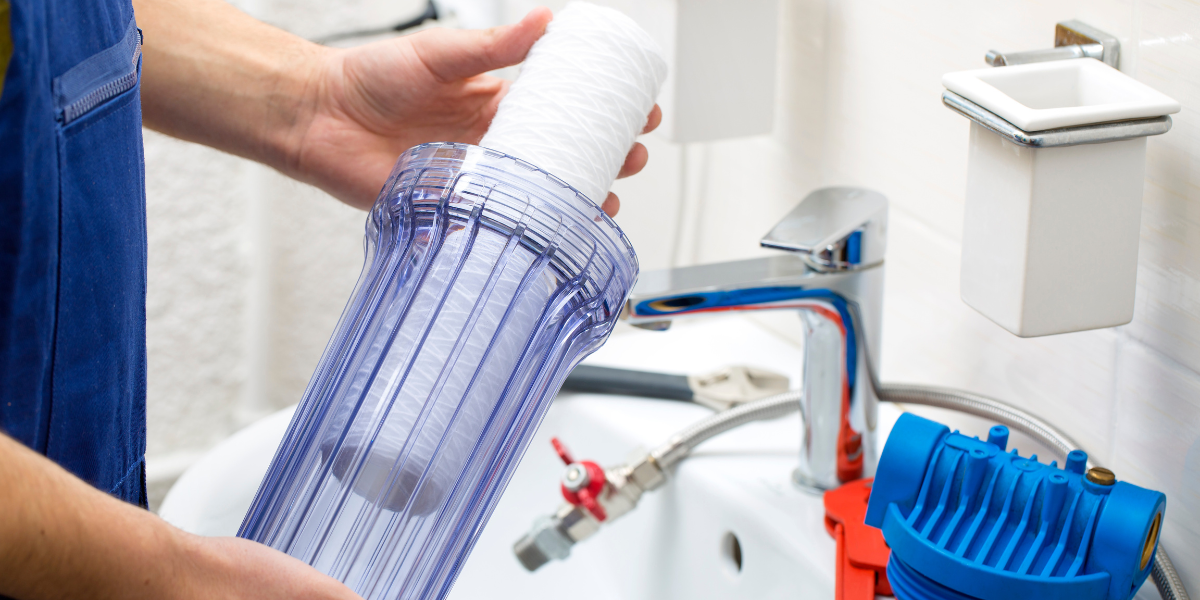A Filtered Life: Comparing the Best Whole House Water Filtration Systems
Welcome to 2023, where the quest for the purest home water is no longer a dream but a reality!
With technological advancements, the best whole-house water filter systems have become an integral part of our homes. You’ve landed in the right place if you’re searching for the perfect water filter.
This article will take you through the top-notch whole-house water filters of 2023, ensuring your home water is as clean and safe as it can be. Whether you’re looking for the best home water filters or want to upgrade your current water filter systems, get ready to dive into the world of pristine home water filters.
Ensuring a clean and safe water supply in our homes is essential for maintaining good health and well-being. With the increasing concerns about water quality, many homeowners are turning to whole-house water filtration systems to remove impurities and contaminants from their water. In this article, we will explore the benefits of these systems, how they work, factors to consider when choosing the best one, and some of the top whole-house water filtration systems available in 2023.
1. How does a whole house water filtration system work?
A whole-house water filtration system is designed to purify water that enters your home through the main water supply line. It is typically installed at the point of entry, where water from the municipal supply or well enters your house. The system passes the water through various filtration stages to remove impurities and improve quality.
1.1 What is the purpose of a whole-house water filter?
The primary purpose of a whole-house water filter is to provide clean and safe tap water for all your household needs. It helps remove contaminants such as sediment, chlorine, heavy metals, bacteria, and other impurities that may be present in the water supply.
1.2 How does a whole-house water filter remove impurities?
A whole-house water filter uses different filtration methods to remove impurities. These methods include carbon filtration, sediment filtration, reverse osmosis, and water softening. Each filtration method targets specific contaminants and helps improve the overall water quality. The best filtration system for city water is the one that removes what the city doesn’t address and the elements it uses to combat more damaging pollutants.
1.3 What are the different types of filtration methods used in whole-house water filters?
There are several types of filtration methods used in whole-house water filters, such as:
- Carbon Filtration: This method uses activated carbon filters to remove chlorine, chemicals, and organic compounds from the water.
- Sediment Filtration: Sediment filters remove larger particles like sand, rust, and sediment from the water.
- Reverse Osmosis: Reverse osmosis systems use a semi-permeable membrane to remove dissolved solids, chemicals, and contaminants from the water.
- Water Softening: Water softeners remove hardness minerals like calcium and magnesium from the tap water, which can cause scaling and reduce the lifespan of household appliances.
A whole house water filtration system can do exactly what you need it to do, meaning it can remove whichever contaminants you do not want in your home’s water supply. Depending on your home’s water source, you may want to reduce water hardness, to remove sediment, or to eliminate the smell of chlorine. Whole house water filters vary in complexity, but for whichever water quality problem you experience, there is a whole house filter that can provide the solution.
https://www.freshwatersystems.com/blogs/blog/what-is-a-whole-house-water-filter-and-how-does-it-work

2. What are the benefits of installing a whole house water filtration system?
Installing a whole-house water filtration system can provide several benefits, including:
1. Improved water quality: A whole house water filtration system can effectively remove impurities, chemicals, sediments, and contaminants present in the water supply, resulting in cleaner and healthier water for drinking, cooking, and bathing.
2. Health benefits: By eliminating harmful chemicals and contaminants, a filtration system can reduce the risk of waterborne diseases, gastrointestinal issues, and other health problems associated with consuming or using polluted water.
3. Odor and taste improvement: Many filtration systems include activated carbon filters, which can significantly improve the taste and odor of water by removing chlorine, sulfur, and other undesirable compounds.
4. Longevity of appliances and plumbing: A whole house water filtration system can prevent the buildup of sediments and minerals in your plumbing fixtures, water heater, and other water devices. This can increase their lifespan and reduce the need for maintenance or repairs.
5. Reduced reliance on bottled water: With a filtration system in place, you can have clean and safe drinking water directly from your tap, eliminating the need to purchase and dispose of plastic bottles. This saves money and reduces plastic waste, promoting environmental sustainability.
6. Softened water: Some whole house filtration systems also have water softening capabilities, which can reduce the hardness of water by removing minerals like calcium and magnesium. Chilled water can benefit your skin, hair, and overall water usage, including reducing the amount of soap or detergent needed for cleaning.
7. Convenience and ease of use: Once installed, a whole house water filtration system operates automatically, ensuring that all taps throughout your home provide clean and filtered water. This eliminates the need for individual filters on each faucet or appliance and makes accessing clean water more convenient.
8. Protection for sensitive individuals: Those with sensitive skin, allergies, or compromised immune systems may benefit from a whole-house water filtration system as it can remove potential irritants or allergens from water, resulting in reduced skin irritation, fewer allergic reactions, and overall improved health and comfort.
2.1 How does a whole-house water filtration system improve water quality?
A whole-house water filtration system improves water quality by removing various impurities and contaminants. It helps eliminate unpleasant odors and tastes, reduces sediment and chlorine levels and provides clean water for drinking, cooking, bathing, and other household needs.
2.2 Can a whole-house water filter remove all contaminants from the water?
While a whole-house water filtration system can remove many contaminants, it may not eliminate all impurities. For example, some systems may not be effective in removing certain dissolved solids or specific chemicals. Choosing a plan that targets the contaminants in your water supply is essential.
2.3 Does a whole house water filtration system require maintenance?
Like any other household appliance or system, a whole-house water filtration system requires regular maintenance to ensure optimal performance. This includes periodic filter changes, monitoring the system’s pressure, and occasional cleaning of the filters or media. The frequency of maintenance tasks may vary depending on the specific design and water conditions.
3. What factors should be considered when choosing the best whole house water filter?
When choosing the best whole-house water filter for your home, it is essential to consider the following factors:
3.1 What is the water source and quality in your area?
The quality of your water supply can vary depending on whether you receive your water from a municipal source or a private well. Municipal water supplies are generally treated but may still contain chlorine or other contaminants. Water may have different issues, such as high sediment levels or bacterial contamination. Understanding your area’s water source and quality will help determine the right filtration system for your needs.
3.2 What contaminants need to be removed from your water?
Identifying the contaminants in your water is crucial for selecting the appropriate filtration system. Water testing can help identify common impurities like chlorine, sediment, heavy metals, bacteria, or chemicals. Once you know the contaminants you want to remove, you can choose a system that effectively targets those impurities.
3.3 What is the flow rate and filter capacity of the whole house water filter system?
The flow rate and filter capacity of a whole-house water filter system are essential considerations to ensure an adequate supply of filtered water for your household needs. The flow rate determines how much water can pass through the system at a given time, while the filter capacity indicates how long the filters will last before needing replacement. Understanding these specifications will help you select a system that can meet your household demands.
Whole house filters are designed to allow greater flow rates. This is to provide sufficient clean water for the entire home. They are effective at eliminating disinfectants like chlorine and other chemicals, rather than bacteria, cysts or viruses. Drinking water filters on the other hand, have much slower flow rates. This ensures a much better reduction of chemicals and heavy metals such as ammonia, copper, fluoride, lead and other toxins.
https://aeonwaterfilters.com.au/the-benefits-of-slower-flow-rates-for-water-filtration/
4. How to install a whole house water filtration system?
Installing a whole-house water filtration system typically involves the following steps:
4.1 What are the necessary steps to install a whole-house water filtration system?
The exact installation process may vary depending on the system you choose, but the general steps include:
- Shut off the main water supply.
- Select the location for the system’s installation.
- Prepare the necessary plumbing connections.
- Install the water filter system according to the manufacturer’s instructions.
- Turn on the main water supply and check for leaks.
4.2 Do you need professional help to install a whole house water filter?
While some homeowners may have the necessary skills and experience to install a whole-house water filter, it is often recommended to seek professional help, especially if you need to become more familiar with plumbing or have a complex system. Experienced plumbers can ensure proper installation and help you avoid any potential issues.
4.3 Are any maintenance tasks involved after installing a whole-house water filtration system?
After installing a whole-house water filtration system, regular maintenance is necessary to keep the system functioning effectively. This includes changing the filters at recommended intervals, monitoring the system for any issues, and performing occasional cleaning or repairs as needed.

5. What are some of the best whole house water filtration systems available in 2023?
In 2023, some of the best whole-house water filtration systems available include:
5.1 Whole house water filter system A
System A is a high-capacity whole-house water filter that utilizes a carbon block filter to remove chlorine, sediment, and other common impurities. It has a long filter life and is suitable for municipal and healthy water sources.
5.2 Whole house water filter system B
System B is a comprehensive whole-house water filter system that combines multiple filtration methods, including carbon filtration, sediment filtration, and water softening. It is designed to address various water quality issues and provide clean, soft water for your entire home.
5.3 Whole house water filter system C
System C is a compact and efficient whole-house water filter system that combines activated carbon and reverse osmosis to remove impurities and contaminants. It is particularly effective in removing dissolved solids and provides high-quality drinking water.
When selecting the best whole-house water filtration system for your needs, consider factors such as water quality, specific contaminants, flow rate, and filter capacity. Reading reviews, comparing features, and consulting with professionals are also beneficial to ensure you choose the most suitable system.
Further Reading & Entities
https://en.wikipedia.org/wiki/Water_purification
https://en.wikipedia.org/wiki/Microfiltration
https://www.forbes.com/home-improvement/plumbing/best-whole-house-water-filters/
Q: What are the best home water filters for whole-house water filtration systems?
A: The best whole-house water filtration systems, also known as home water filters, are designed to filter and purify the water that enters your home. These systems ensure that every faucet and appliance in your house receives clean and safe water.
Q: What is a whole house water filter system?
A: A whole-house water filter system is a filtration system installed at the main water line where it enters your home. It filters all the water into your house, providing clean and safe water throughout the home.
Q: Why should I invest in a whole-house water filter system?
A: Investing in a whole-house water filter system is beneficial for several reasons. It helps remove impurities and harmful contaminants from the water, provides better-tasting water, protects your plumbing and appliances from damage, and improves the overall quality of the water in your home.
Q: What are the best water filter systems of 2023?
A: The best water filter systems in 2023 include various brands and models. Some popular options are Express Water, 3-stage whole house water filtration systems, UV filters, and salt-free water conditioners. Choose a system that fits your specific needs and budget.
Q: How does a whole house water filter system purify the water?
A: A whole-house water filter system purifies the water using different filtration stages. These stages include sediment filters, activated carbon filters, reverse osmosis membranes, and UV disinfection. Each step helps remove specific contaminants from the water.
Q: Can a whole house water filter system treat hard water?
A: Yes, a whole-house water filter system can treat hard water. Some systems come with water softener capabilities that remove minerals causing hardness from the water, resulting in softer water throughout your home.
Q: How often do I need to replace the filter in a house water filter system?
A: The frequency of filter replacement depends on the specific system and the water quality in your area. In general, filters should be replaced every 6 to 12 months, but following the manufacturer’s guidelines for your particular system is recommended.
Q: What are the benefits of using a whole-house water filter system?
A: The benefits of using a whole-house water filter system are numerous. It removes contaminants from water, improves water taste and odor, protects your plumbing and appliances, reduces the need for bottled water, and provides clean and safe water for all your household needs.
Q: How do I choose the right whole-house water filter for my home?
A: To choose the right whole-house water filter for your home, consider factors such as the water quality in your area, your specific filtration needs, system capacity, and budget. It’s also helpful to read reviews and compare different systems before deciding.
Q: Where can I buy a whole house water filter system?
A: Whole house water filter systems can be purchased from various sources, including home improvement stores, online retailers, and specialized water treatment companies. Choosing a reputable seller is recommended to ensure you get a quality product.

